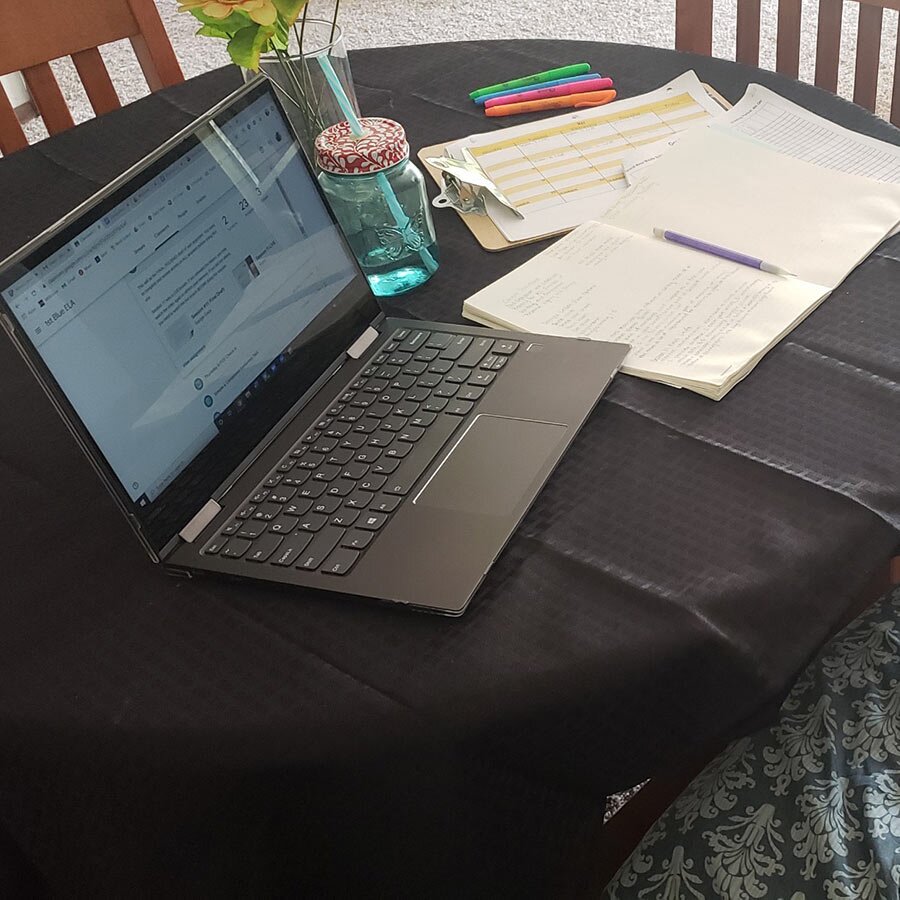Colorado Voices: Learning to teach during COVID-19

The future of education has been redefined by COVID-19. Students and teachers alike were forced into an online format which has caused stress, confusion, and many technical difficulties.
Within this new world of online education is the student-teacher. Regardless of whether or not the online format stays in a post-pandemic world, the future of our community’s education is our student-teachers who have been placed in a unique situation where the usual chaos that is the classroom is further complicated by COVID-19.
Brittany Burnett is a 7th-grade English student-teacher amidst this pandemic. She has been refining her ability as an educator for years now in her undergrad. According to her, COVID-19 has redefined her experience as an educator.
“Before all of this started, I had set goals with my mentor and supervisor for ways that I would improve over the next several weeks, and I haven't been able to work on those in the same way. I've had to redefine expectations and learning, like all teachers, but unlike most, I don't already have all of those fully-formed definitions in my toolbox. I'm having to learn something entirely different and reshape my perception of the field every day,” she said.

While adapting her definition of education, Brittany also monitors how her students are affected by the sudden change in learning.
“Things are mostly asynchronous, so kids don't feel the connections they once felt with teachers and other students, and it's caused a lot of them to withdraw from learning,” she said.
Yet, not all is lost in online education. Although difficult, Brittany has managed to spot silver linings that keep her, her mentor teacher, and her students engaged.
“One great thing that's coming out of this for some kids is increased parent involvement in the learning experience. It's been really awesome to see some parents working with their kids to understand what their kids are doing day in and day out. Those parents are really beginning to see how their kids learn and to appreciate who they are as students and as people. They're taking a more active role in their children's education, and it's amazing!” she said.
As is true with many other student-teachers, there isn’t a lack of experience being gained. In fact, Brittany feels like she has been able to grow and adapt to the current state of education.
“I've really learned to be intentional in my interactions with students. Similarly, this change has allowed me to work on my ability to communicate with parents and to bring them in as partners in their children's education, something I may not otherwise feel comfortable with at this point in my student teaching,” she said.
There is, however, crucial experience being missed due to COVID-19. In education, not everything can be transferred online.
“While I have learned some new things and gained different skills, this experience has also made me concerned that perhaps I've missed some crucial understanding that I would've gotten during these last several weeks,” Brittany said.
Brittany is not having a unique experience. Student-teachers across the country are navigating the COVID-19 landscape.
Brooke Arrieta is a high school student-teacher in the Grand Valley. Like Brittany, she has been wrestling with online education. She has noted some changes in behavior in her own students.
“I think the biggest change for students is they now have to be problem solvers. If they’re not understanding something they don’t have someone there to ask questions or point them in the right direction. They also don’t have someone there to clarify or check their understanding until they submit an assignment,” she said.
With learning now being tailored for online, the internet has been a valuable resource for Brooke to plan her lessons.
“A lot of lesson planning time was spent finding online resources students could use and supplement as activities and practice for the classroom. With this being the first time for most teachers teaching online it has been a lot of searching and finding quality online resources we can use effectively,” she said.
Although the way they teach has changed, Brooke has found that the fundamentals of teaching have stayed the same. A genuine connection can happen through our computer screens. Although the current state of education is not ideal, the future of education is brighter than ever. Through this crisis, the young teachers of our community are being forged into strong educators.
“It has definitely made teaching in the traditional sense more difficult. However, with change comes growth. I think the switch has challenged a lot of teachers in many ways but we have become better educators because of it. We have found ways to still reach our students and to assist in any way we can. Has it been perfect? No, but with each trial and error, we have learned more and can use that knowledge moving forward,” she said.
As the school year ends, student-teachers across the globe can and should be fully confident to finally drop the qualifier and become teachers.
Hector Salas is a graduating-senior at Colorado Mesa University and an intern at Spoke+Blossom.
